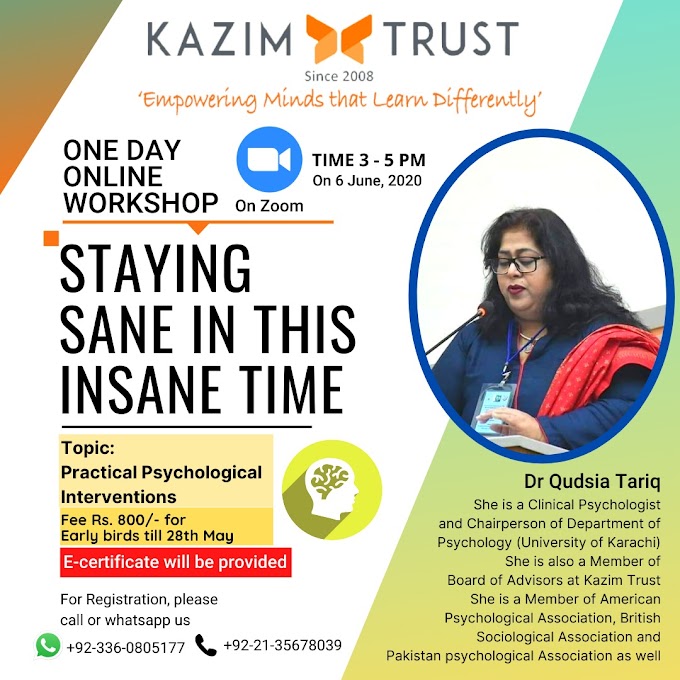It is estimated that 5 to 15 percent of school-age children suffer from one or the other learning disorders. From which, one-third of them are identified to also have attention-deficit hyperactivity disorder (ADHD). The following learning disorders need to be recognized and treated:
Dyslexia
This learning disorder is a neurological condition and has no direct connection with intelligence. It can often be genetic and it does not happen because of poor upbringing, nurturing teaching, or instruction. Dyslexia is common, it affects word recognition, spelling, and the ability to match letters. It involves the ways the brain processes graphic symbols. Kazim Trust works for such children in diagnosis, support, and guidance from an early age, which can help lessen the effect and the condition the children may face. Remedial therapists help children with Dyslexia at Kazim Trust by providing Remedial therapy to them. They take the challenge and make the children learn to read and write, giving them the right instructions.
Dyscalculia
Math is one of the most important skills one has to develop. But children suffering from dyscalculia face learning difficulty related to math concepts. It is too overwhelming for such children to understand the wider concepts that are fundamental for the application of certain rules in math, for example, children with dyscalculia can’t differentiate between a lesser to a greater amount, or money and time concept. This is not as simple as it sounds.
Dyscalculia does occur by itself, or it may be a neurological condition. There is more research required to figure out the causes of dyscalculia. A few types of research say that it can happen because of the lack of explicit early instructions in math. Such children need special attention and a lot of time and patience. Kazim Trust caters to the need of children who are suffering from dyscalculia. Trained Remedial therapists and specialists take care of these children with dedication and affection.
Dysgraphia
It is a known fact that many people remember things when they write it down. They believe it keeps them more organized. But some certain children and adults struggle with the mechanics of writing. They are known to have a learning disorder called dysgraphia. This is incredibly challenging and frustrating at the same time for a child who can’t effectively show what he knows. Such children often fail an exam, despite knowing the answer, they are unable to put it on paper.
Dysgraphia is mostly identified when the child starts to learn writing. Seldom it is not possible to identify until adulthood. It is a learning disability that affects fine motor skills, thus writing ability. At Kazim Trust, therapists who have mastered in this area deal with children with such issues. They make sure to identify this learning disorder at the elementary level so that the child can be helped in the best possible manner.
Kazim Trust is an organization that beliefs in the well-being of every individual. The trained staff is relentlessly serving to help children and adults with learning disorders. Because they know and care that if learning disorders are not identified and managed can cause problems throughout a person’s life, such as psychological, emotional, and financial issues. Therefore, Kazim Trust serves beyond par for a better life for people with learning disorders.




0 Comments